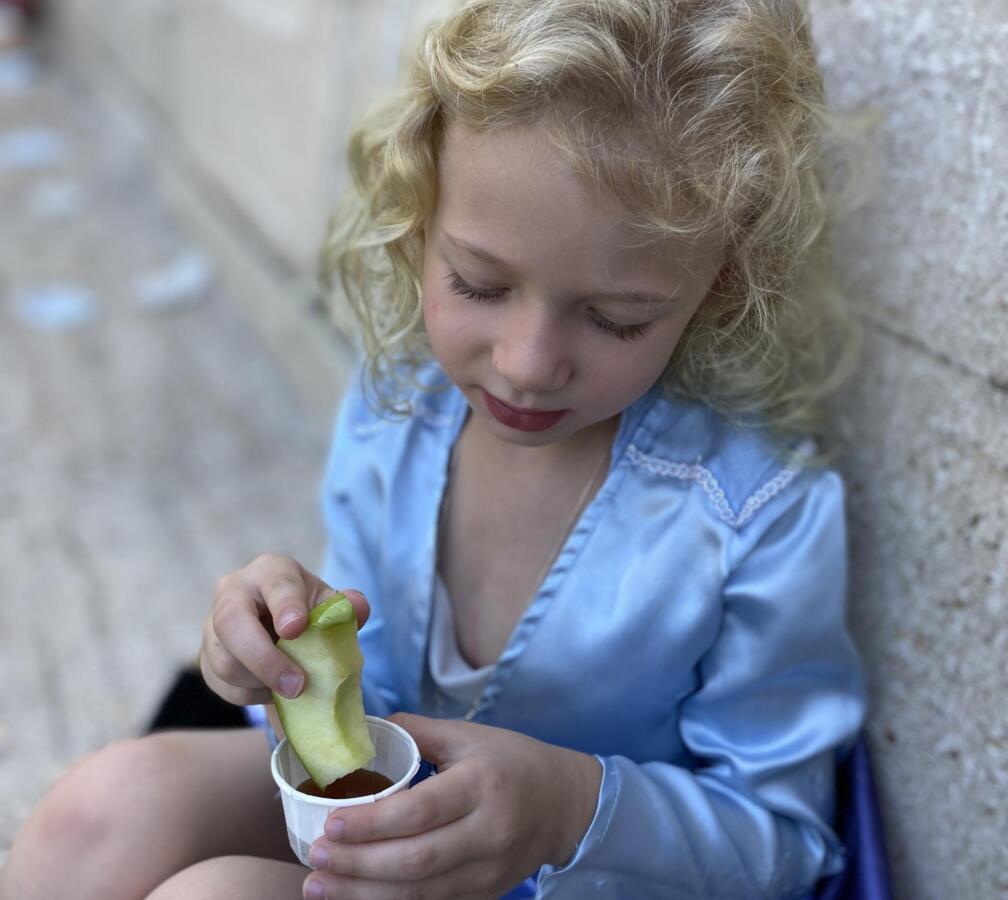“How were your holidays?” is an entertaining question to receive as a clergyperson when it comes to the High Holidays. Usually, the honest answer is “exhausting” but the one I give is “great!”, so as not to seem too downtrodden by the biggest Jewish moments of the year. However, in this second year of social distancing, I feared the most honest answer this time around would be: “Weird.”
This year, I was not leading worship. I was instead in charge of my young children, which generally precludes even attending adult-worship-experiences. My wife is an ICU nurse at the local children’s hospital, on the frontlines of the pandemic. For the holidays, as with so many moments this past year and a half, I needed to find a way to not only keep my kids entertained but make the moments meaningful. Even as a rabbi, I wondered again: how could I make Rosh Hashanah feel unique and vital to my children, with none of the regular celebrations in place?
I cooked a special meal, which created a mess in the kitchen while the kids messed up the house (they barely touched their freshly-made schnitzel). But I still wanted something more for them. We are fortunate enough to belong to a congregation offering a children’s service. We were luckier still to have temperate weather during the peak of hurricane season. So off to the temple we went.
Sitting outside on blankets, my kids got to come to the synagogue for the first time in a year and a half. My daughter got to see multiple Jewish families celebrating the same holiday—at the same time—something she’s missed out on here in Mississippi since Chanukah of 2019.
Scheduled for 30 minutes, the youth program actually ran long—ten minutes short of an hour. Fifty minutes of Rosh Hashanah time. We sang some holiday tunes. We participated in some interactive activities that highlighted particular (and kid-appropriate) elements of the holiday. We tasted some apples and honey while playing and talking on the playground (all while socially distanced). It felt fine—not particularly meaningful for this rabbi, but pleasant enough.
That is, until lunchtime.
Seeking to make the day feel different, I took our eldest child to eat outside at her favorite local eatery, Sal & Mookies. I’m not sure if she chose it because pizza is her favorite or because they have an ice cream bar. Regardless of her decision, it provided my most potent moment from High Holidays, which occurred while we walked out. Anxious to remove her mask and dig into the cotton candy ice cream covered in gummy bears, she heard the host say something completely normal: “Thanks for coming. We appreciate your business!”
My daughter looked up at me, full of incredulity, and said, “Why didn’t he wish us a Shanah Tovah?!” (Shanah tovah is the greeting for a good new year.) Then, indignantly, she added, “Doesn’t he know it’s Rosh Hashanah?”
What ensued was a ten-minute conversation that, undoubtedly, is not limited to the South. But our topic of discussion sometimes feels more prevalent—how is it that most Southerners in our greater community are not Jewish, most people do not know any Jews, and very few folks are familiar with Judaism beyond what’s in their Bible? At one turn in our talk, my five-year-old reasoned that since we knew all about the Christian holidays—we see the Christmas creep of decorations in the big-box stores starting in October—they should be familiar with our holidays.
Oddly enough, that conversation is what helped make my holidays meaningful.
Even though we only spent 50 minutes acutely focused on the first Day of Awe, outside at the synagogue— the impact it had on my daughter was immediate, which made the impact on me significant. I was lucky enough that my daughter, from this preciously small amount of time, was able to learn a bit of her tradition and feel immense pride in it.
So I hope—whether you’re in a pew, on a screen, or sitting outside in the grass—you may find a few moments that, while they may feel weird, will still be preeminently meaningful and memorable. Wishing a safe, healthy, and good Shanah Tovah in this year of 5782 to everyone.
The post The Power of 50 Minutes appeared first on My Jewish Learning.



